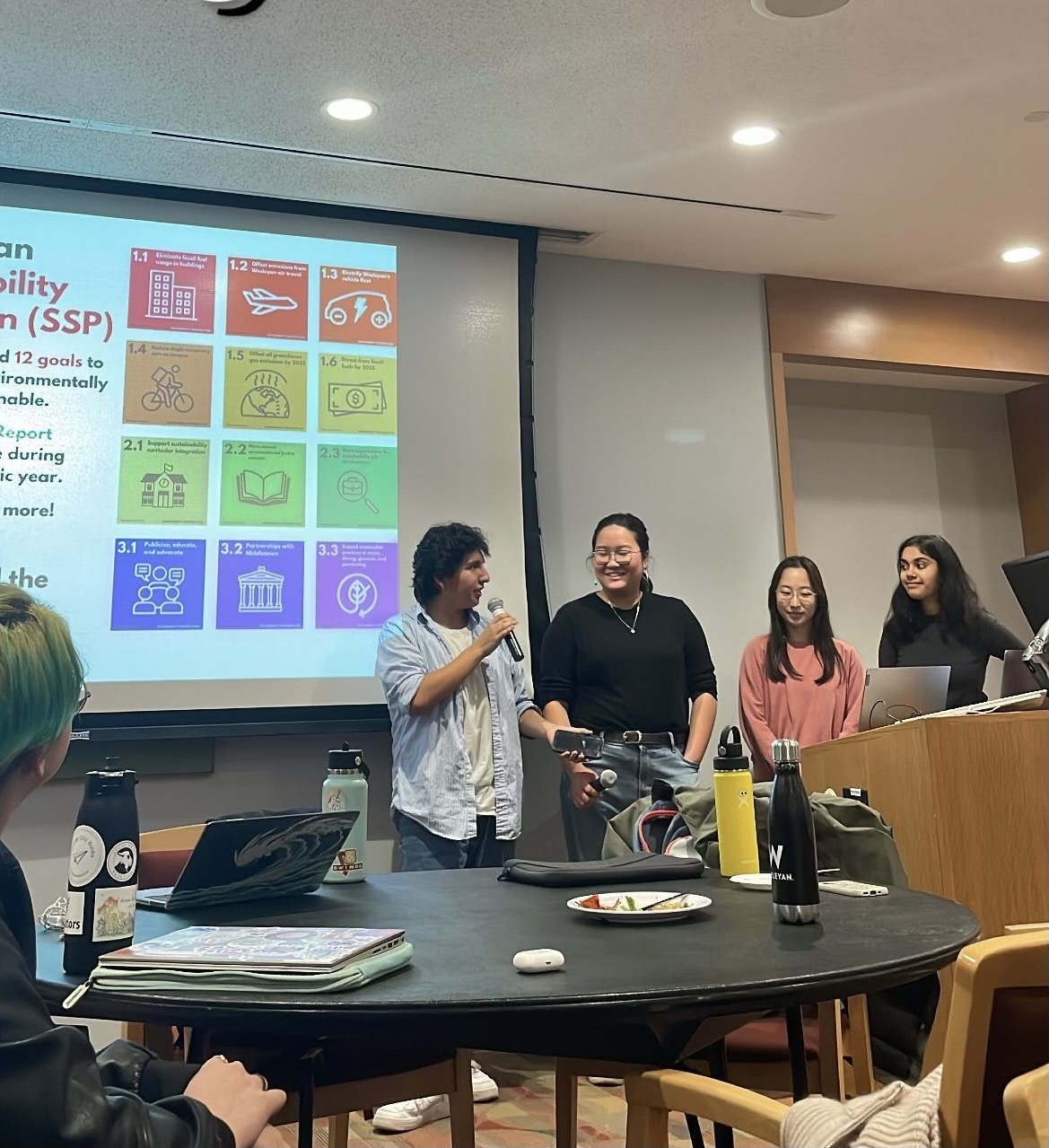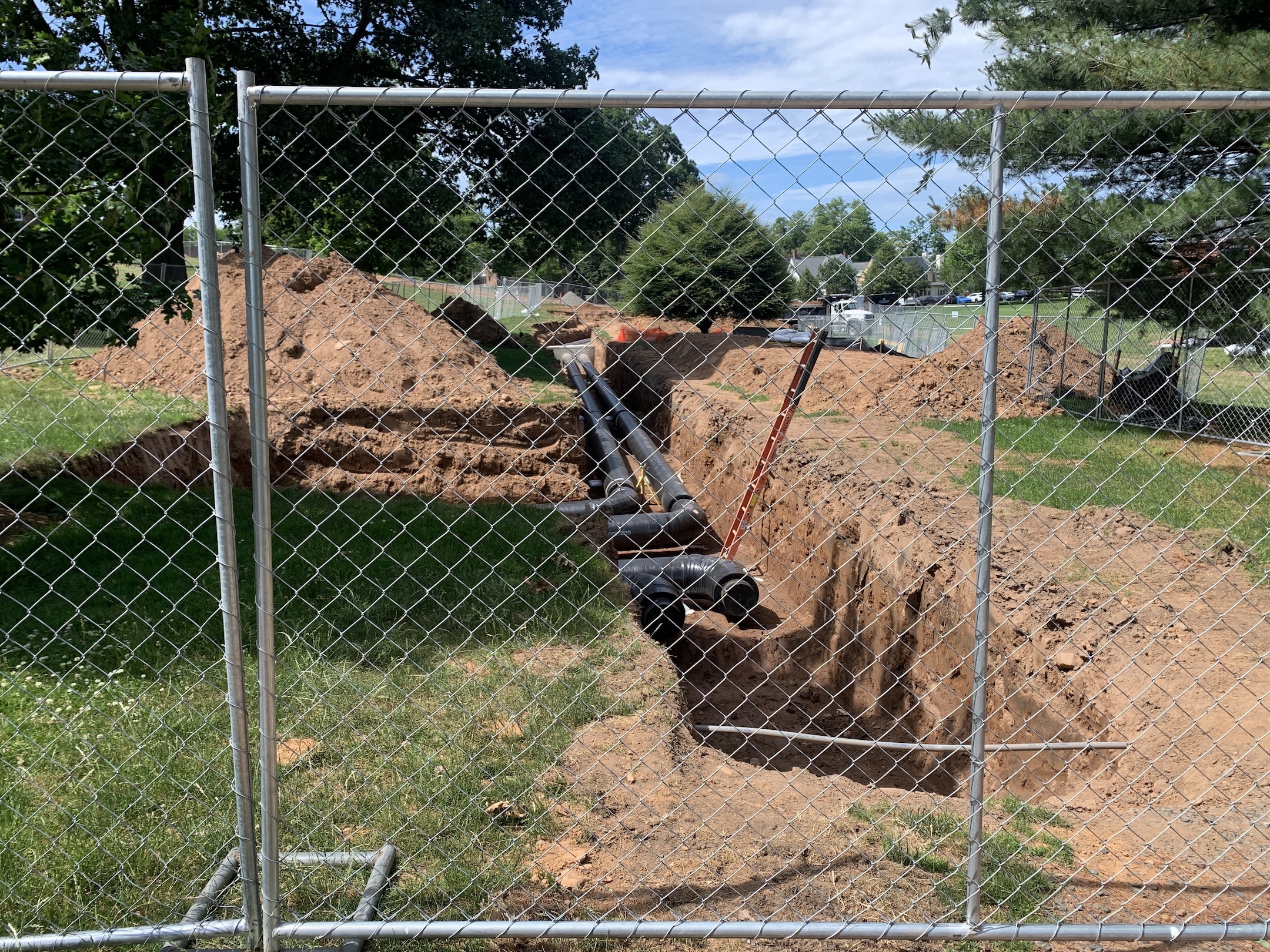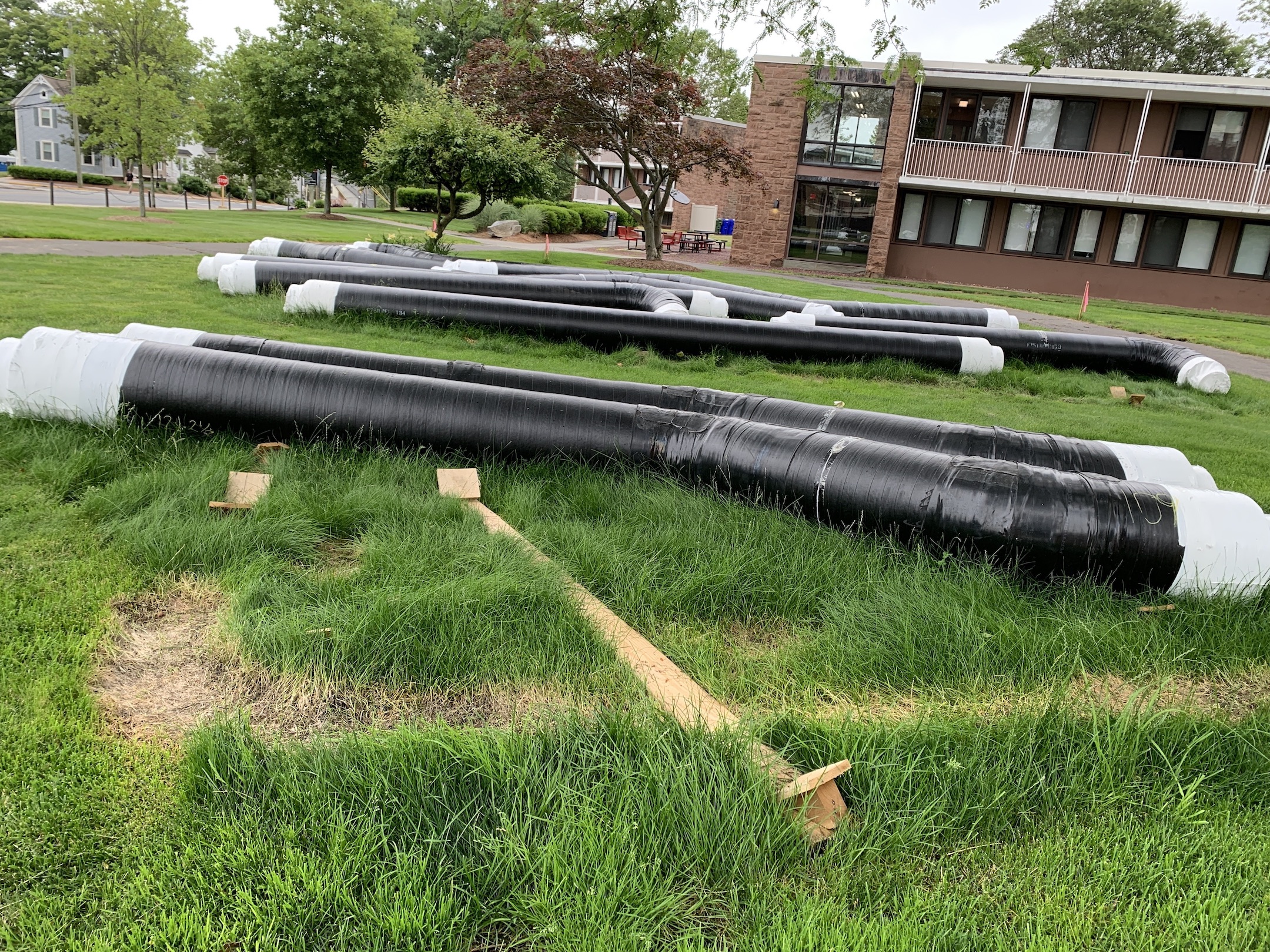
The University released its first Sustainability Strategic Plan (SSP) Annual Report in late October, covering the progress achieved since the adoption of the program in May 2022 and outlining its further goals. Alongside the release, the Wesleyan Sustainability Office posted signs around campus to raise awareness of the report, which is available on the Wesleyan Sustainability website. The SSP is a broader, long-term-oriented successor to the Sustainability Action Plan, which ran from 2016 to 2021 and was focused more on short and mid-term goals.
“The SSP was developed in collaboration with a committee of about a dozen faculty, staff, and students from 2021-2022 (over 3 semesters),” Sustainability Director Jen Kleindienst wrote in an email to The Argus. “There were some workshops with students/student groups/SAGES [Sustainability Advisory Group for Environmental Stewardship] sustainability committee/alumni to gather feedback leading up to the 2021-22 process as well as during that time. The culmination of the plan was having it approved by President [Michael] Roth [’78] and then presenting it to the Board of Trustees.”
The SSP has three main sections under which specific goals are categorized: carbon, curriculum, and community. Carbon goals are broadly those that contribute to the University’s overarching aim of carbon neutrality for greenhouse gas emissions by 2035. Curriculum goals focus on student efforts to increase sustainability and environmental justice education through courses, workshops, research, and other programming. Community goals increase sustainability awareness within the University and the broader community.

In the year since the plan was approved, some carbon goals have been underway. The steam-to-hot-water pipe conversion, which began in 2019, is a core tenet of the carbon neutrality target and is currently on the sixth of nine phases. The University also recently installed 11 new electric vehicle charging stations on campus and is purchasing carbon offset credits for all employee air travel. Despite these efforts, greenhouse gas emissions increased to approximately 20,000 MTCo2e [metric tons of carbon dioxide equivalent] in 2022, levels similar to those in 2020.
According to the SSP report, around 51% of students were involved in sustainability community engagement last year, either through courses, research projects, internships, or volunteering. This means the University is halfway toward achieving its goal of having at least 80% of the student body involved in one or more of these activities by 2030.
In the past year, the Bailey College of the Environment (COE) received a $2 million grant which allowed it to hire Assistant Professor of the Practice Christine Caruso and helped establish the new role of Food, Sustainability, and Environmental Justice Coordinator. Additionally, the COE funded work for 43 students in the summer of 2023 and held events which were attended by a total of 1500 students, faculty, staff, and community members in 2022–23.
For the community goal, the WesThrift Free Store and Sew What Tailoring Program were highlights of the sustainability initiatives launched in the 2022–23 school year. Students also collaborated with Middletown to raise awareness and work on civic projects. The University has also expanded sustainability programs, including public composting and ReUser/Eco-to-Go containers, since the launch of the SSP.
Overall, the University spent around $5.9 million last year on SSP-related projects, the majority of which went toward pipe conversion and electric vehicle charging stations. Although individual projects that make up the plan do have proper funding, there is no budget for the SSP as a whole.

“Everything we want to implement needs to be done through existing office budgets or through putting in a new money request with the University, but those take a lot of time and obviously there are a lot of conflicting priorities,” Student at Large for the Sustainability Strategic Plan Committee Debbra Goh ’24 said. “That makes it difficult to think about what people can be doing.”
The Environmental Student Network (ESN), a civic engagement program under the Jewett Center for Community Partnerships (JCCP) focused on environmental issues at Wesleyan, held a town hall in the Daniel Family Commons to discuss the results of the SSP Annual Report 0n Tuesday, Nov. 7. Afterwards, attendees could get their questions answered by members of the ESN, including Goh, Dylan Campos ’24, Ishani Dave ’24, and Mao Kato ’24.
“I think it’s something that more students should be aware of, that this is something that the University has committed to, and that they have made these firm commitments with firm target dates,” Goh said. “I think it would be good if students are aware that this commitment has been made and keep an eye out on progress and ensure that we’re actually making actionable steps toward achieving this target.”
Spencer Landers can be reached at sklanders@wesleyan.edu.


Leave a Reply